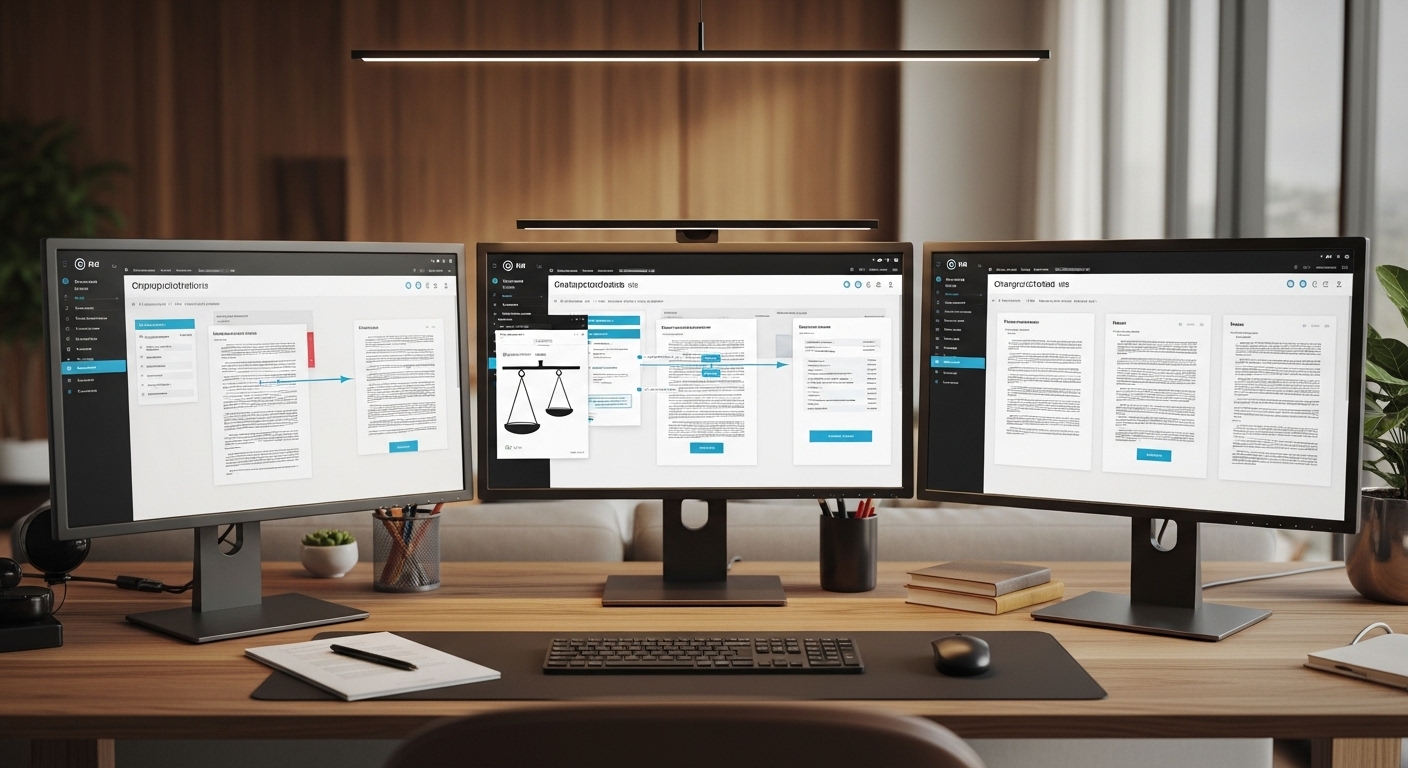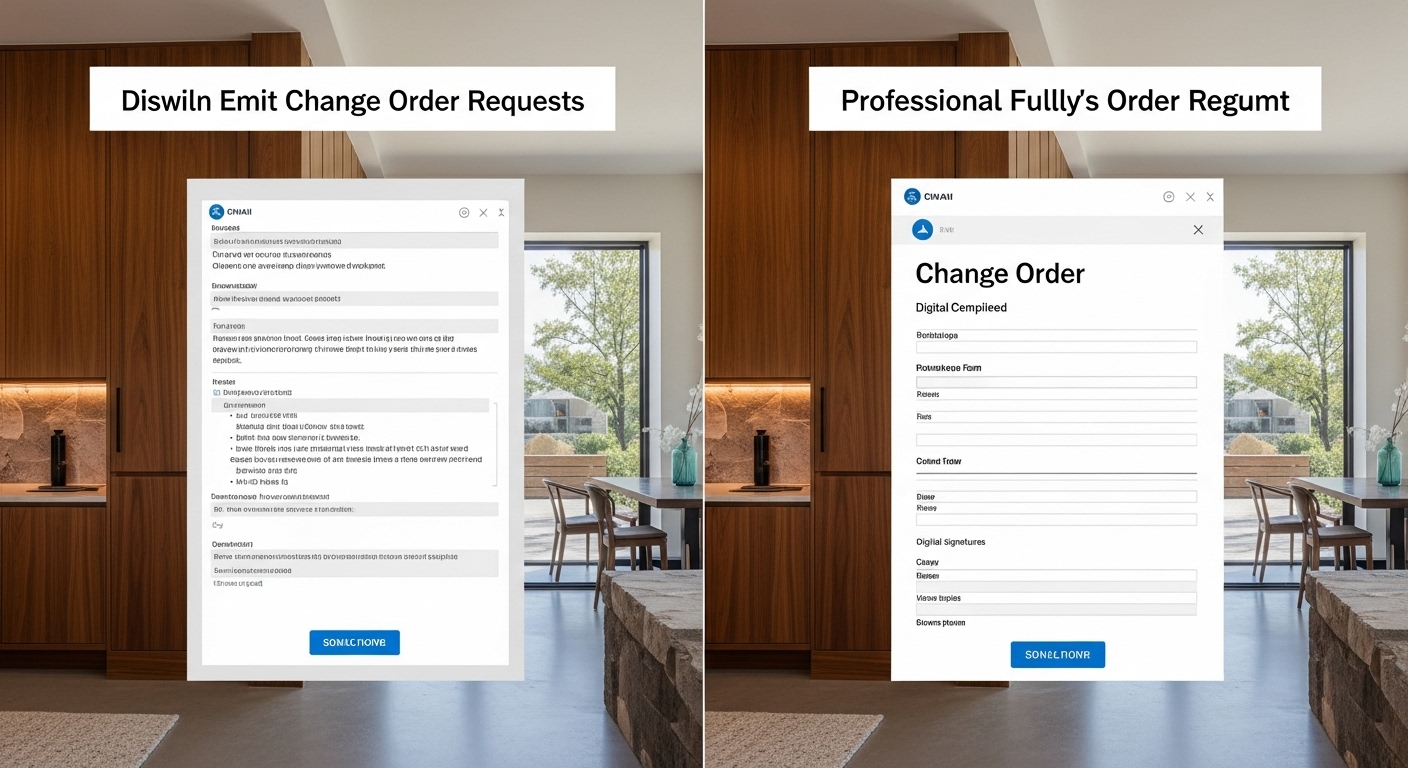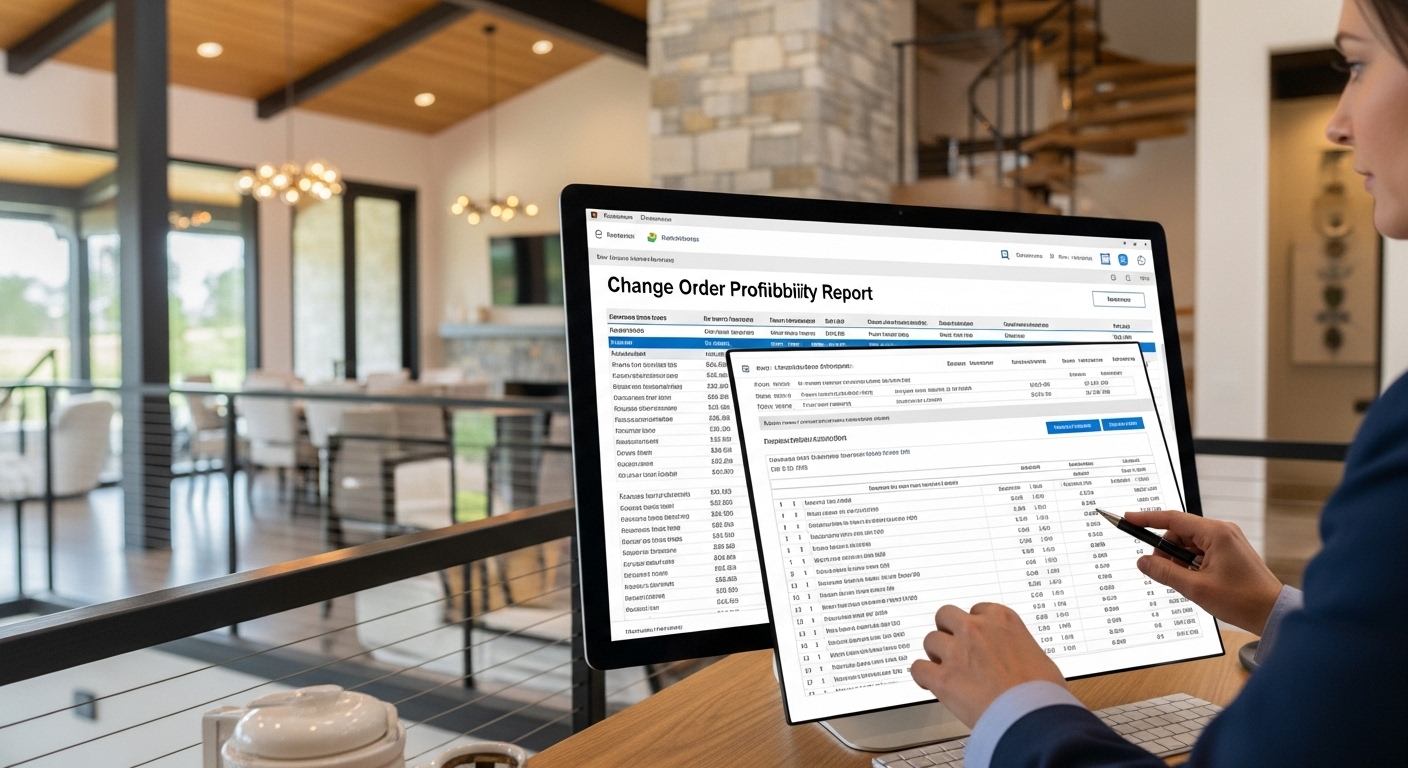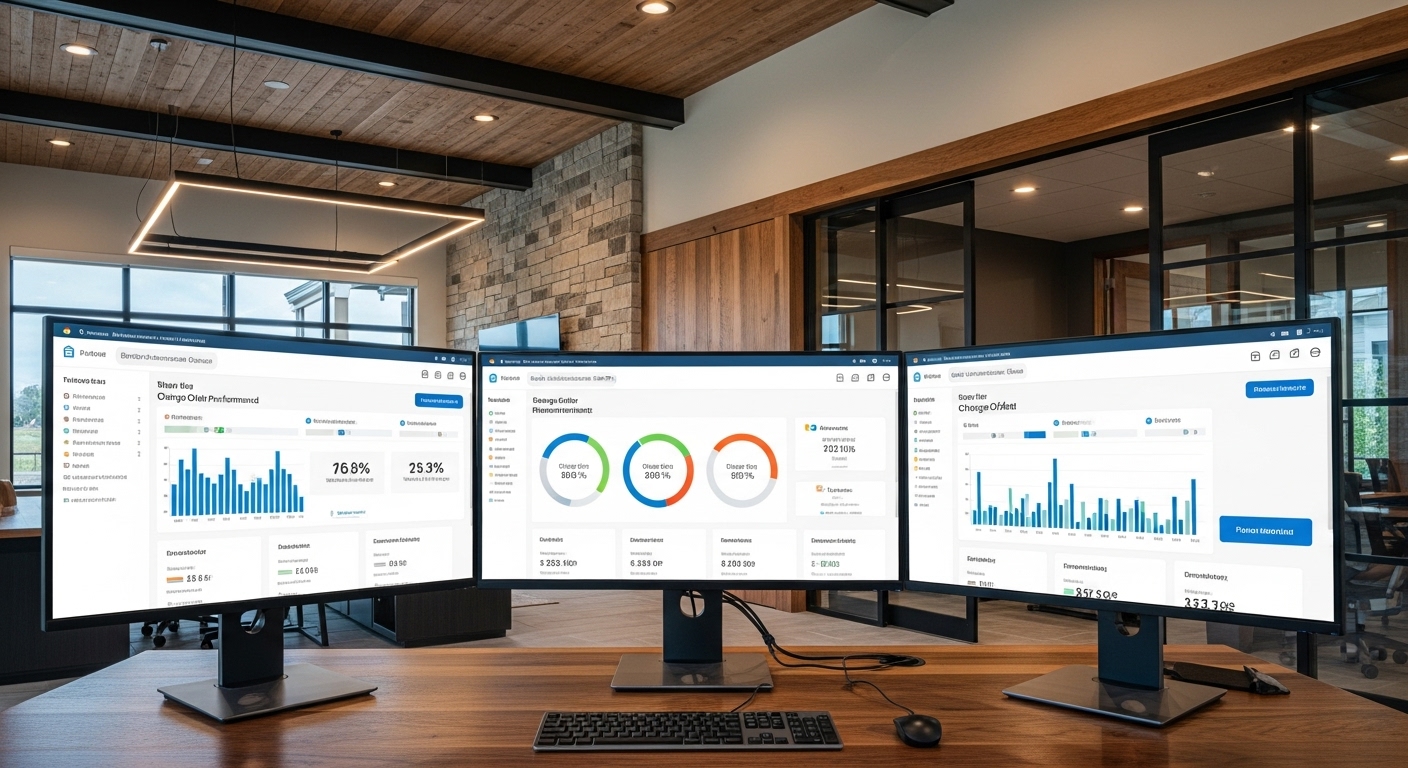August 4, 2025 by 100XBuilds Team
Change Order Management: Reduce Disputes by 89%

A $12M luxury builder reduced change order disputes by 89% and increased project margins by 23% simply by implementing a systematic contract administration process. The secret? Treating every change order like a potential lawsuit waiting to happen.
The luxury construction industry loses an estimated $47 billion annually to change order disputes, cost overruns, and project delays. Yet most custom builders still manage change orders through email chains, verbal agreements, and handshake deals that would make any contract attorney break into a cold sweat.

The Hidden Cost of Poor Change Order Management
When Meridian Custom Homes analyzed their project data, they discovered a shocking reality: 73% of their client disputes stemmed from poorly documented change orders. Even more alarming, projects with inadequate change order processes averaged 34% lower profit margins than those with systematic administration.
The math is brutal but simple:
Average $2M luxury project without systematic change orders:
- 47 change orders per project (industry average)
- 23% disputed or questioned
- 18 days average resolution time
- $127,000 in lost profit due to disputes and delays
Same project with systematic administration:
- 52 change orders per project (better documentation encourages proper requests)
- 3% disputed
- 2.4 days average resolution time
- $294,000 in protected profit
The difference? A systematic approach that treats every change order as a binding contract amendment requiring proper documentation, approval workflows, and client acknowledgment.
The Anatomy of Bulletproof Change Order Administration
Documentation Standards That Prevent Disputes
Every change order must include seven non-negotiable elements:
Detailed scope description: Specific materials, labor, and timeline impacts
Cost breakdown: Labor hours, material costs, markup percentages clearly itemized
Timeline implications: Start date, completion date, impact on overall project schedule
Client approval signatures: Both spouses must sign when applicable
Subcontractor acknowledgments: All affected trades must confirm understanding
Photo documentation: Before and after conditions when relevant
Reference to original contract: Specific section being modified

The Three-Tier Approval System
Tier 1: Field-Level Changes ($0-$2,500)
- Site supervisor can approve immediately
- Client notification within 24 hours
- Formal documentation within 48 hours
- No work stoppage required
Tier 2: Moderate Changes ($2,501-$15,000)
- Project manager approval required
- Client meeting scheduled within 72 hours
- Written approval before work begins
- Impact assessment on other trades
Tier 3: Major Changes ($15,001+)
- Executive approval mandatory
- Formal presentation to client
- 7-day consideration period
- Full project timeline reassessment
This tiered system prevents small changes from becoming major bottlenecks while ensuring significant modifications receive appropriate scrutiny.
Digital Workflow Implementation
Change Order Management Software Integration
The most successful luxury builders use integrated platforms that connect change orders to:
Project scheduling software: Automatic timeline adjustments
Accounting systems: Real-time cost tracking and invoicing
Client portals: Transparent approval status and cost visibility
Subcontractor platforms: Immediate notification and acknowledgment requirements
Document management: Centralized storage with version control

Blackstone Custom Builders implemented BuilderTREND's change order module and saw immediate results:
- 67% reduction in approval time
- 91% decrease in documentation errors
- 45% improvement in client satisfaction scores
- $340,000 additional profit in first year
Mobile Approval Capabilities
Clients expect immediate responses in today's digital world. Mobile-optimized approval systems allow:
Real-time notifications: Push alerts for pending approvals
Photo attachments: Visual context for change requests
Digital signatures: Legally binding approvals from anywhere
Cost calculators: Instant pricing for common modifications
Progress tracking: Status visibility throughout approval process
Client Communication Protocols
The Change Order Conversation Framework
Step 1: Discovery Questions
- "Help me understand what you're envisioning..."
- "What's driving this change request?"
- "How does this align with your original goals?"
Step 2: Impact Assessment
- "Here's how this affects your timeline..."
- "The cost implications include..."
- "Other areas that might be impacted are..."
Step 3: Option Presentation
- "We have three approaches to consider..."
- "Option A provides... at this investment level..."
- "Option B delivers... with these trade-offs..."
Step 4: Decision Framework
- "Based on your priorities, I recommend..."
- "The approval process requires..."
- "Once approved, we'll begin on..."

Proactive Change Order Prevention
The best change orders are the ones that never happen. Systematic prevention includes:
Detailed pre-construction planning: 40+ hours of design review before groundbreaking
Material selection deadlines: All finishes locked 30 days before installation
Weekly progress reviews: Proactive identification of potential changes
Client education sessions: Understanding of change order implications
Allowance management: Clear documentation of what's included vs. additional
Financial Controls and Profit Protection
Change Order Pricing Methodology
Labor markup structure:
- Standard work: 15% markup
- Rush work: 35% markup
- After-hours work: 50% markup
- Rework due to client changes: 25% markup
Material handling fees:
- Special orders: 20% handling fee
- Expedited delivery: Actual costs plus 15%
- Storage requirements: $50/day for materials held beyond schedule
- Return/restock fees: Actual vendor charges plus administrative fee
Administrative costs:
- Change order processing: $150 per order
- Permit modifications: Actual costs plus $300 processing fee
- Engineering revisions: Actual costs plus 25% markup
- Schedule disruption: $500/day for significant timeline impacts

Cash Flow Management
Payment terms for change orders:
- 50% due upon approval
- 50% due upon completion
- Net 15 payment terms
- 1.5% monthly service charge on overdue amounts
Budget tracking systems:
- Real-time cost tracking against approved amounts
- Automatic alerts at 80% of approved budget
- Client notification at 90% of approved budget
- Work stoppage at 100% without additional approval
Legal Compliance and Risk Mitigation
Contract Language That Protects
Change order clauses must include:
"All changes to the original contract must be documented in writing and signed by both parties before work begins. Verbal authorizations are not binding and will not be honored for payment purposes."
"Change orders may impact the project completion date. Client acknowledges that schedule adjustments are necessary and agrees to revised timeline upon approval."
"Payment for change orders is due according to the terms specified in each individual change order, which may differ from the original contract payment schedule."
Lien waiver requirements:
- Conditional waivers upon change order approval
- Unconditional waivers upon payment receipt
- Subcontractor lien waiver collection
- Material supplier waiver coordination

Dispute Resolution Procedures
Internal escalation process:
- Project manager review and client discussion
- Company owner involvement if unresolved
- Mediation through construction industry arbitrator
- Binding arbitration as final resolution
Documentation requirements for disputes:
- Complete change order file with all communications
- Photo documentation of work performed
- Time and material records
- Client communication logs
- Subcontractor statements and invoices
Performance Metrics and Continuous Improvement
Key Performance Indicators
Change order efficiency metrics:
- Average approval time by tier level
- Percentage of disputed change orders
- Client satisfaction scores for change order process
- Profit margin impact of change orders
- Administrative cost per change order
Financial performance indicators:
- Change order revenue as percentage of total project value
- Profit margin on change orders vs. base contract
- Cash flow impact of change order payment terms
- Cost of change order disputes and resolutions
Client satisfaction measurements:
- Net Promoter Score for change order experience
- Percentage of clients who would recommend based on change order handling
- Complaint resolution time for change order issues
- Repeat client rate among those with significant change orders

Continuous Process Improvement
Monthly review procedures:
- Change order volume and type analysis
- Profit margin assessment by change category
- Client feedback compilation and analysis
- Process bottleneck identification
- Staff training needs assessment
Quarterly optimization initiatives:
- Software system updates and improvements
- Contract language refinements
- Pricing methodology adjustments
- Staff performance evaluations
- Client communication protocol updates
Annual strategic planning:
- Change order policy comprehensive review
- Technology platform evaluation and upgrades
- Legal compliance audit and updates
- Competitive analysis of change order practices
- Long-term profitability trend analysis
Implementation Roadmap
Phase 1: Foundation (Weeks 1-4)
- Document current change order processes
- Identify pain points and inefficiencies
- Select and implement change order management software
- Develop standardized forms and procedures
- Train key staff on new processes
Phase 2: Rollout (Weeks 5-8)
- Implement new procedures on current projects
- Monitor performance and gather feedback
- Refine processes based on initial results
- Expand training to all project staff
- Begin client education on new procedures
Phase 3: Optimization (Weeks 9-12)
- Analyze performance metrics and KPIs
- Fine-tune pricing and approval workflows
- Implement advanced features and integrations
- Develop client communication materials
- Establish ongoing monitoring and improvement procedures
The investment in systematic change order administration typically pays for itself within the first three projects through improved profit margins and reduced disputes.
Protecting Your Reputation and Relationships
Remember: every change order is an opportunity to demonstrate professionalism and build client trust, or to create confusion and damage relationships. The builders who treat change order administration as seriously as they treat foundation engineering are the ones who build sustainable, profitable businesses that clients recommend to their friends.
Your change order process is a direct reflection of your company's professionalism and attention to detail. Make it bulletproof, and watch your profit margins—and client satisfaction scores—soar.
Ready to transform your change order chaos into a profit-generating system? Contact 100XBuilds today for a comprehensive analysis of your current contract administration processes and a customized implementation plan that will protect your profits and strengthen client relationships. Our systematic approach has helped luxury builders increase change order profits by an average of 34% while reducing disputes by over 80%.
